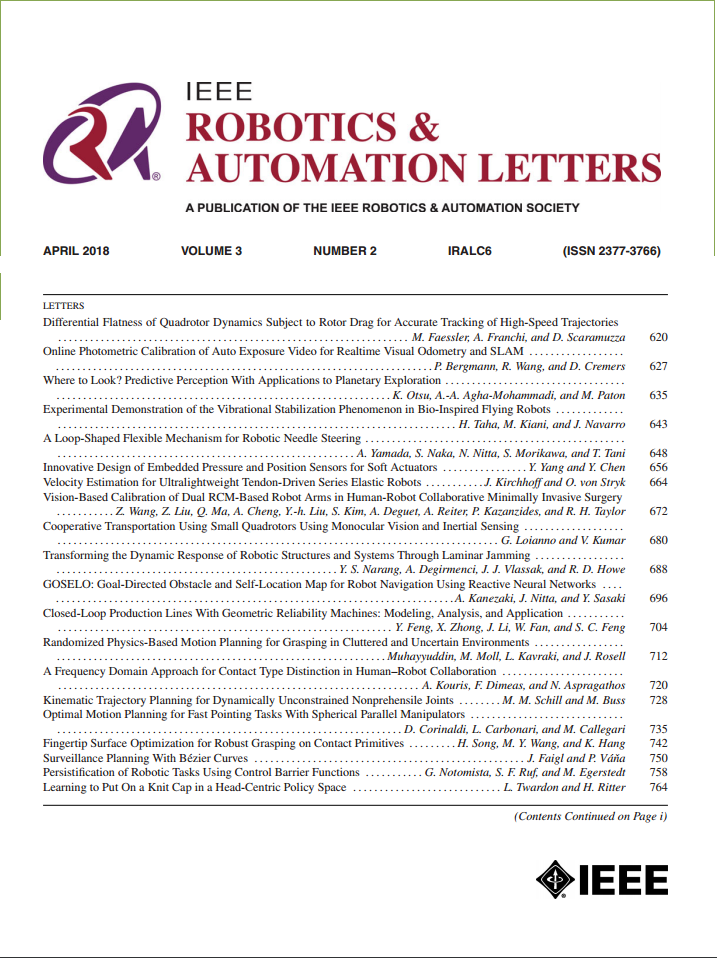Exploring Unstructured Environments Using Minimal Sensing on Cooperative Nano-Drones
IF 4.6
2区 计算机科学
Q2 ROBOTICS
引用次数: 0
Abstract
Recent advances have improved autonomous navigation and mapping under payload constraints, but current multi-robot inspection algorithms are unsuitable for nano-drones, due to their need for heavy sensors and high computational resources. To address these challenges, we introduce利用合作式纳米无人机上的最小传感探索非结构化环境
最近的进步改善了有效载荷限制下的自主导航和测绘,但目前的多机器人检测算法不适合纳米无人机,因为它们需要重型传感器和高计算资源。为了应对这些挑战,我们引入了 ExploreBug,这是一种新颖的混合前沿测距-虫算法,旨在处理纳米无人机群有限的传感能力。该系统包括三个主要组件:绘图子系统、探索子系统和导航子系统。此外,还集成了一个蜂群内部防撞系统,以防止无人机之间发生碰撞。我们通过大量的模拟和实际探索实验验证了我们方法的有效性,在模拟中最多涉及七架无人机,在实际环境中最多涉及三架无人机,涉及各种障碍物配置,最大导航速度为 0.75 米/秒。我们的测试证明,在不同的蜂群规模和障碍物密度下,该算法都能高效地完成探索任务,即使感知能力极低。此外,我们的前沿分配启发式确保了蜂群中每架无人机所探索区域和路径的平均分配。我们公开发布了拟议系统的源代码,以促进使用自主纳米无人机进行测绘和探索的进一步发展。
本文章由计算机程序翻译,如有差异,请以英文原文为准。
求助全文
约1分钟内获得全文
求助全文
来源期刊

IEEE Robotics and Automation Letters
Computer Science-Computer Science Applications
CiteScore
9.60
自引率
15.40%
发文量
1428
期刊介绍:
The scope of this journal is to publish peer-reviewed articles that provide a timely and concise account of innovative research ideas and application results, reporting significant theoretical findings and application case studies in areas of robotics and automation.
 求助内容:
求助内容: 应助结果提醒方式:
应助结果提醒方式:


